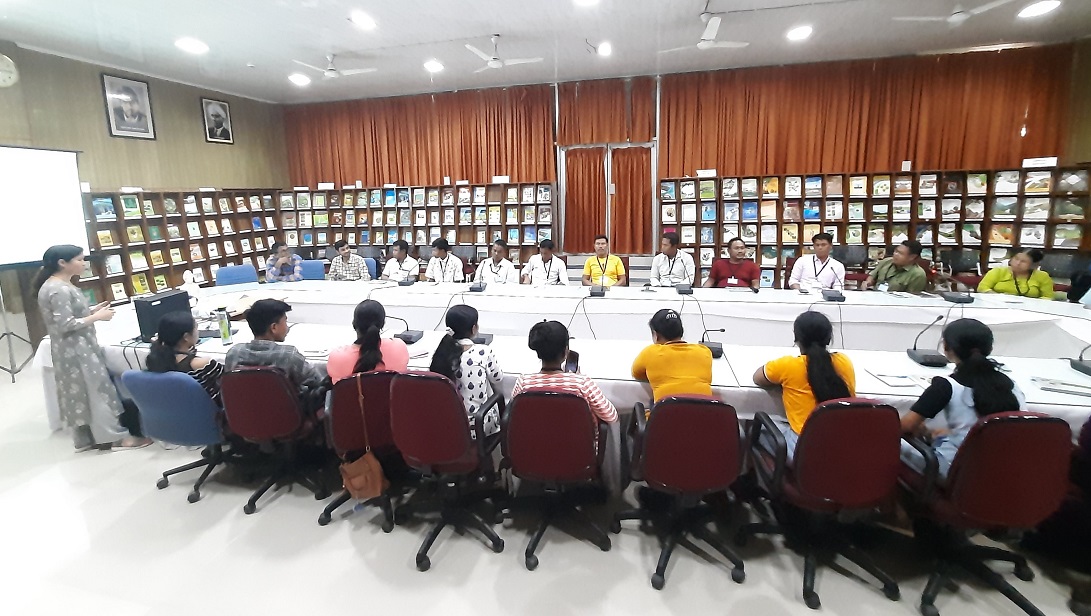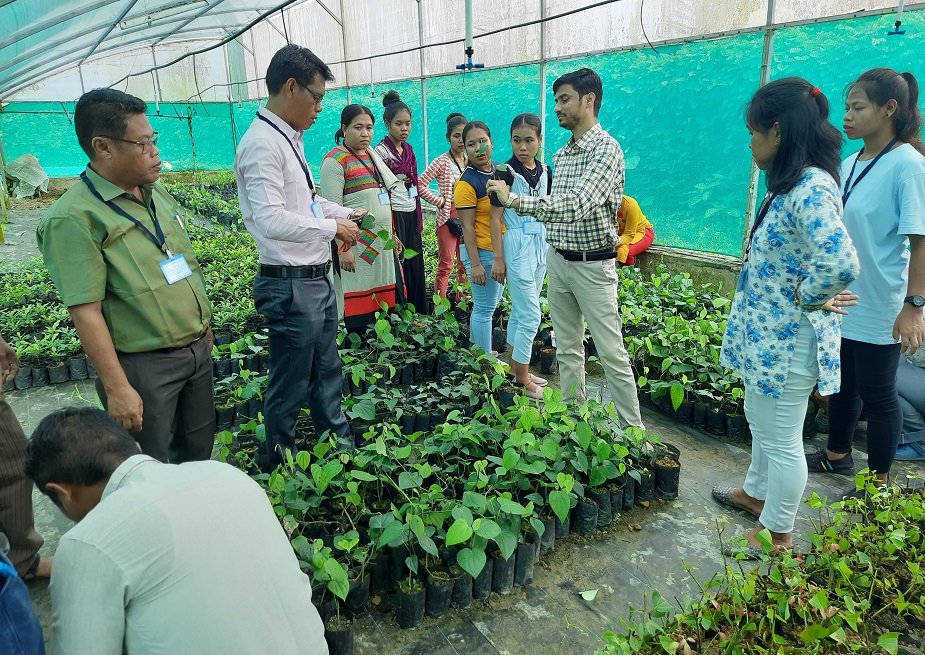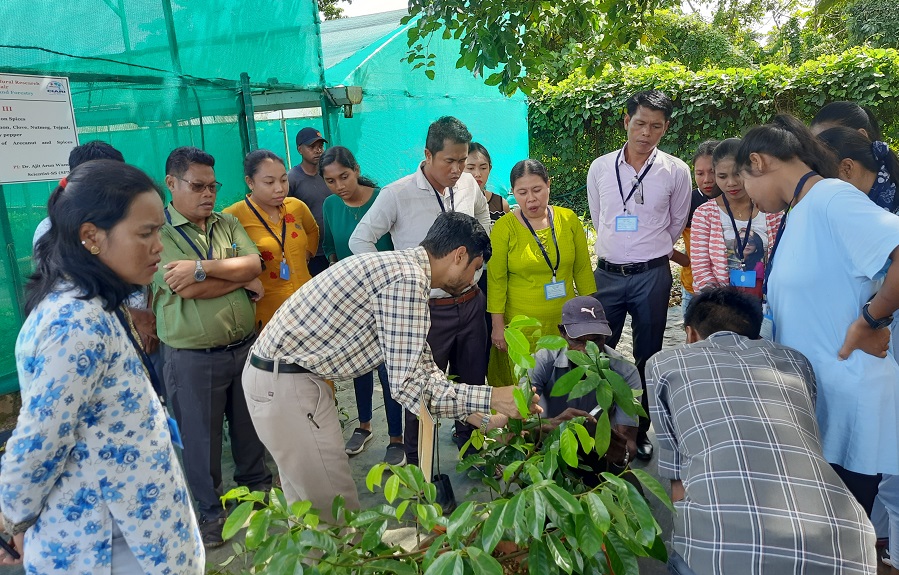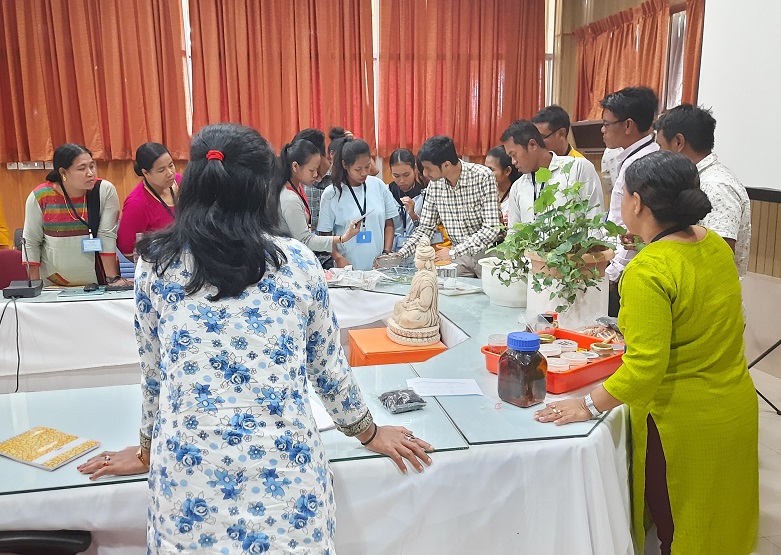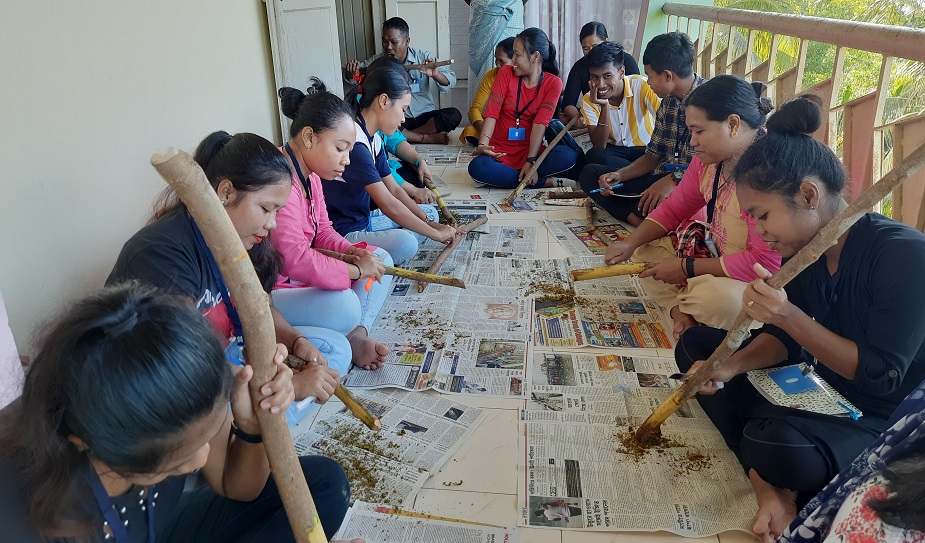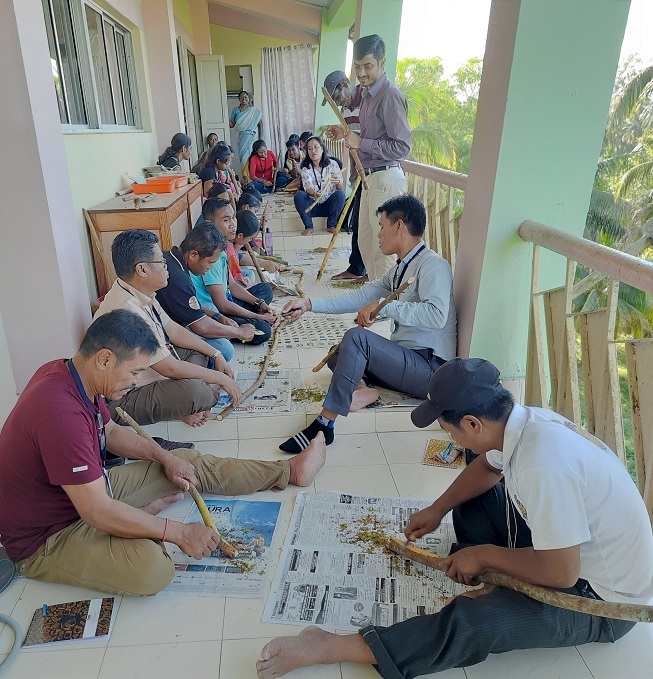Skill development for Nicobarese farmers: Three Days Training Programme on Improved Cultivation and Post harvest Handling of Spices concludes at ICAR-CIARI
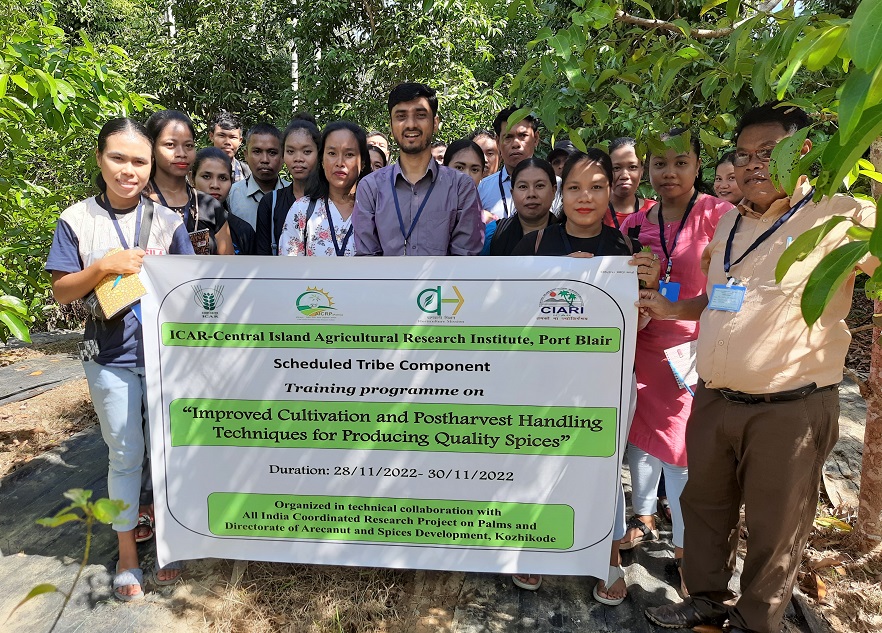
The native Nicobarese community of our islands has largely been dependent on coconut for their livelihood. In order to enhance the income avenues, diversification of agriculture is a viable option. Spice crops have been regarded as amongst the most remunerative cash crops, which could be cultivated both as intercrops as well as pure crops. However, the quality of spices produced is largely governed by the cultivation and postharvest practices followed. In order to equip the tribal farmers with scientific farming technologies, a three days training programme on ‘Improved Cultivation and Postharvest Handling Techniques for Producing Quality Spices’ was organized by ICAR-CIARI, Port Blair under the Scheduled Tribe Component during November 28 to 30, 2022.
During the inaugural programme, Dr. D. Bhattacharya, Director (I/c), ICAR-CIARI and Chief Guest of the programme interacted with the participants and expressed his happiness over the diversity of participants. He emphasized on the significance and role of youth in scientific cultivation and marketing of island produce. He urged the participants to reap benefits of the training programme for enriching their knowledge about spices. Series of technical sessions were organized for providing theoretical and practical exposure to the participants. Dr. Ajit A. Waman, Scientist, ICAR-CIARI and Coordinator of the programme dealt in detail about the techniques of spices cultivation in the islands through audio visual presentation, which was followed by SWOT analysis of spices farming by Dr. Pooja Bohra, Scientist, ICAR-CIARI and Co-coordinator of the event.
During the programme, field visits were made to experimental blocks of black pepper, cinnamon, woody pepper, turmeric, mango ginger, lemon grass, tejpatta, Malabar tamarind and spices based intercropping blocks wherein various agro-techniques followed for these crops were demonstrated to the participants. An exposure visit was also paid to the Spices Nursery and Horticultural Plants Propagation Unit of the Institute to showcase various protected structures, irrigation setups and diversity of important horticultural plants of the islands. Practical sessions on propagation of spices through division, cutting, layering and grafting were carried out by involving the participants. Hands on experience were provided on the techniques for postharvest processing in black pepper, cinnamon, tejpatta etc.
To improve the marketing prospects, various value added products such as powdered spices, spice mixes and essential oils were showed to them during a session. Value added products developed by the Institute were also showcased apart from providing guidance on various aspects of marketing and cooperative farming.
During valedictory session, Dr. Bhattacharya interacted with the participants about their experience during the training programme. Mr. Festus Nathaniel, Secretary, Tribal Council and First Headman, Mr. Andrew Moses, expressed happiness over the programme contents and overall practical exposure provided during the event. To promote the cultivation of spices, planting material of various spices was distributed to the participants. The programme was organized in technical collaboration with CSS-NHM project on Spices and AICRP on Palms which was attended by 25 Nicobarese tribal farmers from Harminder Bay, Little Andaman Island.

